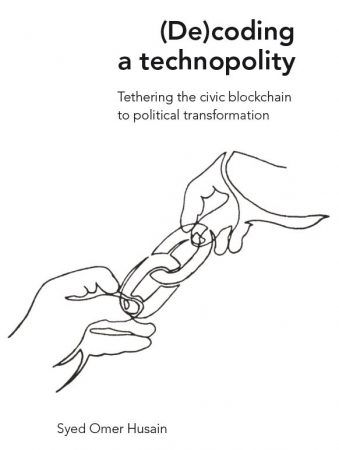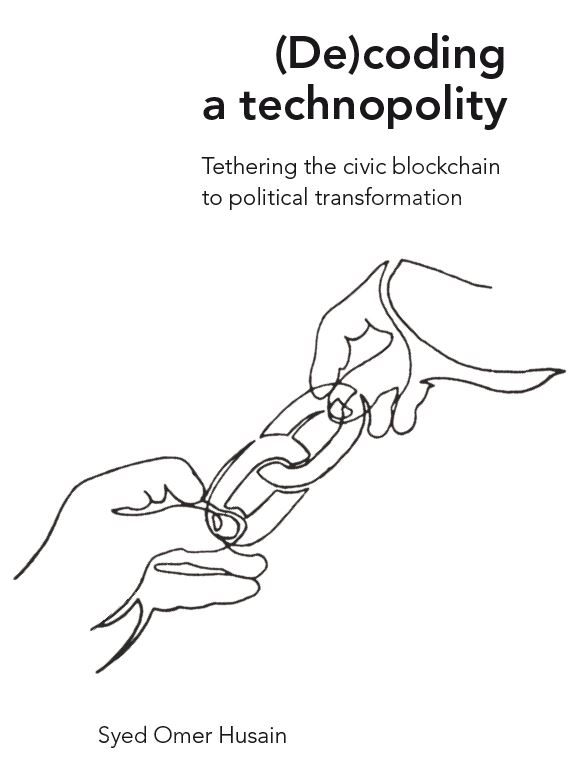 May 14 2020, at 11.00 am (CET) Syed Omer Husain will defend his PhD-thesis ‘(De)coding a technopolity: Tethering the civic blockchain to political transformation‘. See the Abstract below. The full thesis can be downloaded (click title) from WUR Library after the defence ceremony.
May 14 2020, at 11.00 am (CET) Syed Omer Husain will defend his PhD-thesis ‘(De)coding a technopolity: Tethering the civic blockchain to political transformation‘. See the Abstract below. The full thesis can be downloaded (click title) from WUR Library after the defence ceremony.
The ceremony will be live-streamed by Weblectures.wur.nl but is recorded and can be viewed later as well. Syed Omer Husain is affiliated as PhD-candidate at the Rural Sociology Group of Wageningen University. He was employed at the EU-funded MSCA ITN project SUSPLACE.
Abstract
This study rests at the intersection of technopolitics, translocal networks and political change. The overall aim of the thesis is to understand, and in turn, influence, the way technology interacts with political transformation. It responds to the fact that social science has thus far neglected to adequately account for and analyze how emerging technologies like blockchain and civic tech influence the way politics is practiced. The main research question guiding the study is how does the design, implementation and use of technopolitical innovations influence the practice of politics. The thesis foregrounds the idea that technopolitical experiments personify a ‘prefigurative politics by design’ i.e. they embody the politics and power structures they want to enable in society.
Conducted as part of the EU-funded SUSPLACE project that explores the transformative capacity of sustainable place-shaping practices, the research was predominantly inspired by a hybrid digital ethnography methodology. The thesis confines its focus to three empirical clusters: technopolitical blockchain projects, government-led blockchain projects and place-based civic engagement technologies. The study delineates how differing politico-social imaginaries play a role in the design and implementation of technopolitical projects; addresses contemporary post-political phenomena such as the depoliticization of agency; and identifies the activation of a place-based geography of political action through digitally-mediated municipal networks. It articulates the language and frameworks necessary to analyze these present-day challenges, while simultaneously developing approaches that can be exported to different domains of political activism.
Technology is not neutral; but neither are its designers and users. The thesis finds that it is through considerable, deliberate efforts, in conjunction with individual and collective choices, that technopolitical innovations can reframe our socio-economic and political realities. The study demonstrates the emphatic and urgent need for researchers, practitioners, politicians and citizens to collaboratively work on redrawing boundaries of access, empowering the citizenry, creating new forms of organization and re-politicizing the economy. It outlines a transdisciplinary research and practice agenda that aims at not only (de)coding the existing technopolitical innovations, but also (re)coding them to create a more equitable system of politics. The thesis concludes that since coding affordances and constraints in a technopolitical system is shown to regulate political agency and even influence the behavior of citizens, we must devise value-driven technology that incentivizes creating a more equitable political system.

